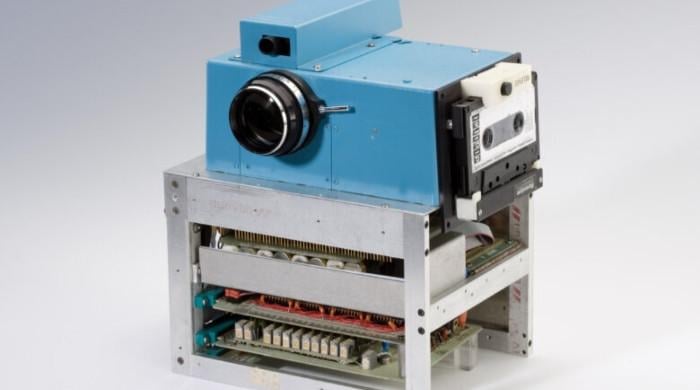Faisalabad 'Slum School' uses solar power to run night classes
In Dec 2016, Rohayl Varind set up two branches of 'Slum School' to educate poor children
August 07, 2018
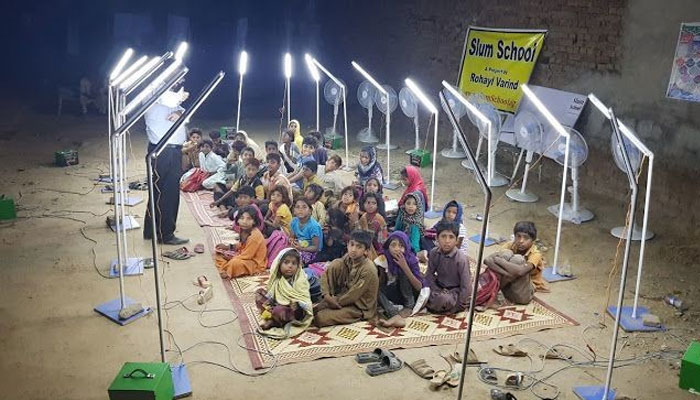
A Faisalabad school has been using solar power to run night classes to educate poor children, according to an article published on the World Economic Forum's website.
In December 2016, 23-year-old social activist and educationist Rohayl Varind set up two branches of 'Slum School' in the city to educate poor children.
The school does not accept cash donations and rather seeks food, stationary, and laptops. Interestingly, another thing on Varind’s donations list is solar powered equipment.
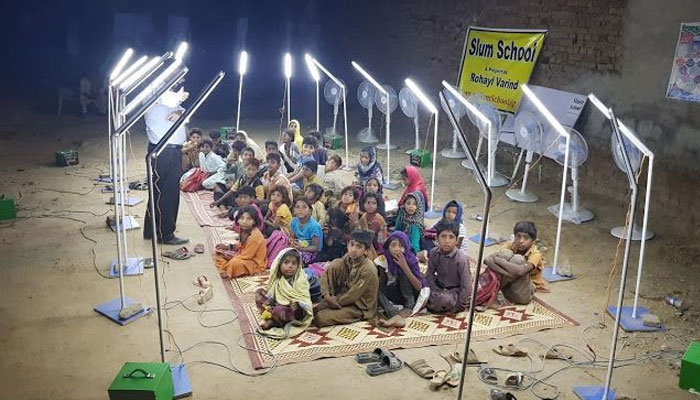
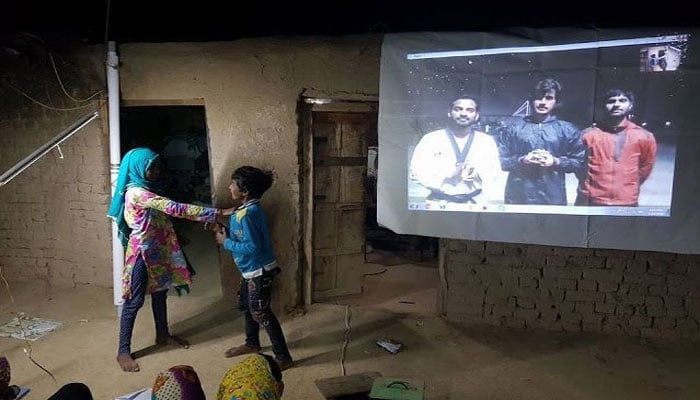
The school, since the time of its inception, has relied on solar energy to power its lights, fans, and IT equipment.
"Where my Slum School is located, there is no electricity so I considered solar energy the best alternative," Varind said. "It’s free and easy to install and use."
The classes are run from 7pm to 9pm, with 23-year-old educationist teaching the kids English, Urdu, math, and science.
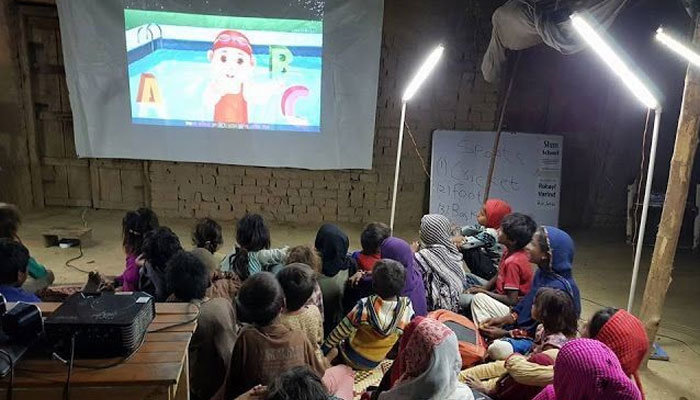
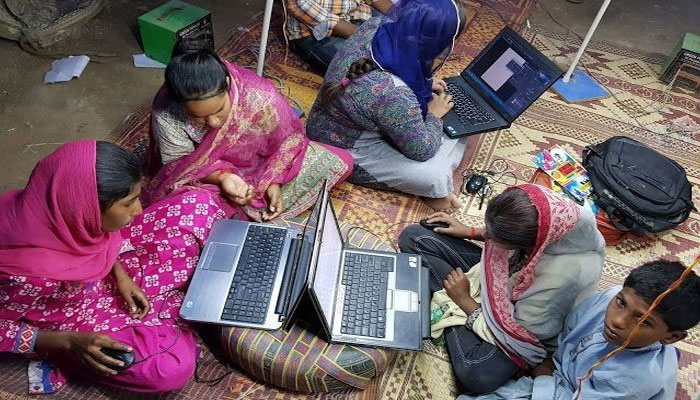
Varind splits his time equally between the two branches of the school, which have a total of over 100 students. Volunteers, which include Varind's friends and other activists, also come in to teach computer, Taekwondo, graphic design, and other subjects to students.
A number of the children Varind teaches are child labourers.
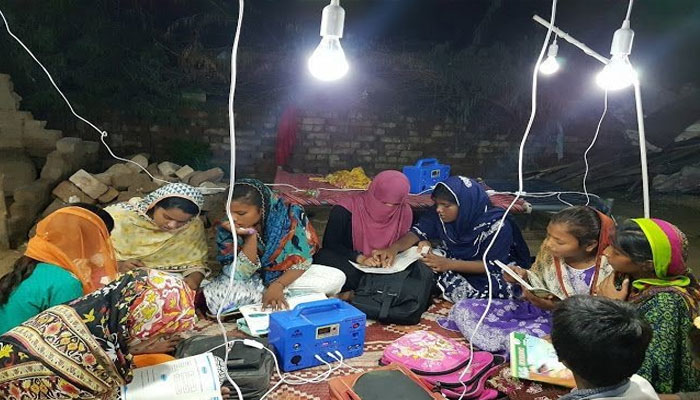
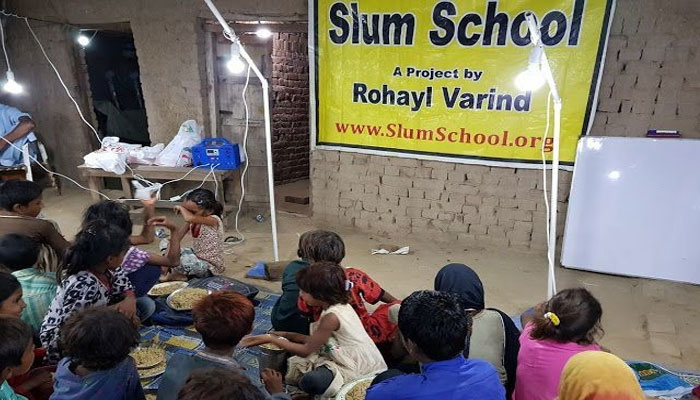
"They start working as house helps or maids. Many boys start working at paan (betel leaf) shops or tea stalls, cafés or restaurants as waiters or cleaners," he said. "One thing is common in majority of child labourers is that they work the whole day and get free at night."
Nearly 23 million children are out of school in Pakistan. But initiatives like Varind's can surely help bring illiteracy in the country down.




